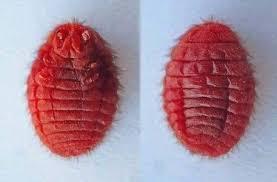this is the bug used for red candies.
Catégories
- Sustainability
- Home
- Wellness
- Theater
- Sports
- Shopping
- Religion
- Party
- Other
- Networking
- Music
- Literature
- Art
- Health
- Gardening
- Jeux
- Food
- Fitness
- Film
- Drinks
- Dance
- Crafts
- Causes
Read More
Sustainable Agriculture:
Promotion of Organic Farming: The Indian government is supporting organic farming through...
A Chef’s Journey: Cooking with Passion and Purpose
"A Chef’s Journey: Cooking with Passion and Purpose" follows the inspiring story of a...
MEXICO NATIONAL FLOWER
yucca FLOWER IS THE NATIONAL FLOWER OF MEXICO
Ways to Conserve Energy at Home
Conserving energy is a smart way to save some cash and help the planet. One simple step is to...
×
Your daily access limit has been reached. Please try again tomorrow.
© 2025 GoSharpener Pvt.Ltd.
Refund and Cancellation policy - We do not entertain any refunds and cancellation French
Refund and Cancellation policy - We do not entertain any refunds and cancellation French


Allergic reactions
Some people may experience allergic reactions to cochineal extract, including hives, itchy skin, rhinitis, diarrhea, and anaphylaxis.
Labeling
In the US, the FDA requires that cochineal extract be identified by name on food labels.
Pasteurization
The FDA also requires that cochineal extract be pasteurized to destroy any salmonella.
Vegetarian
Cochineal is not suitable for vegetarians because it's made from insects.
Cochineal extract is derived from the female cochineal, a type of insect that lives on prickly pear cacti. The insects are sun-dried, crushed, and treated with an acidic alcohol solution to produce carminic acid, which is then used to make cochineal extract.
Cochineal extract is used in many foods and drinks, as well as in cosmetics and pill coatings.